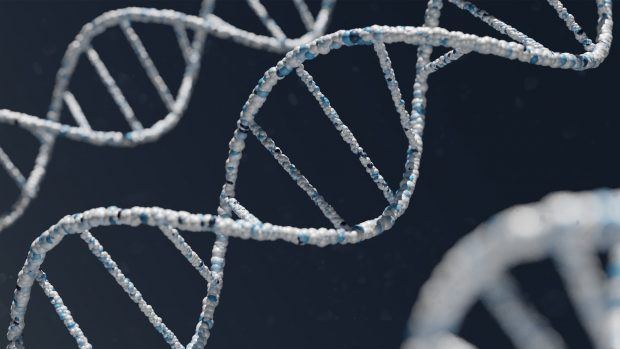Nucleotides are organic molecules consisting of a nucleoside and a phosphate. Arranged as nucleic acid polymers, depending on the corresponding sugar in their backbone they are either called deoxyribonucleic acid (DNA) or ribonucleic acid (RNA. DNA and RNA carry the genetic code and are very essential biomolecules for all life forms on Earth. Nucleotide-based drugs are not only limited to vaccines, their potential and opportunities for applications seem to be almost limitless.
Recently, nucleotides have moved into the realm of being standalone therapeutic and also diagnostic agents. They carry out myriad functions that go beyond the storage of genetic information and protein synthesis. Therapeutics and diagnostics with nucleic acids, either used unmodified or modified, fall somewhere between small molecules and biologics. Some nucleotide sequences are even already used in cosmetics and will probably be a key ingredient in this field in the future.
Nucleotide-based vaccines
Several nucleotide-based compounds are in clinical development, and many have received regulatory approval for human use.
So are vaccines based on messenger RNA (mRNA) attracting worldwide attention, as the Pfizer and Moderna vaccines have been authorized for use by the U.S. Food and Drug Administration and other authorities around the world. And most recently also the first DNA vaccine was approved by the authorities in India. This is the first time that nucleotide-based vaccines have ever been approved for use in humans and marks a critical milestone for achievement in both science and public health.

Photo by Warren Umoh on Unsplash
And so these new kinds of vaccines are revolutionizing the field and conquering the market worldwide, and are probably the sharpest weapon against the ongoing and future pandemics.
But nucleotide-based drugs are not only limited to vaccines, their potential and opportunities for applications seem to be almost limitless.
The future of nucleotide-based drugs
Therapeutic use of DNA and RNA-based platforms contains, among other things, also antisense oligonucleotides, DNA and RNA aptamers e.g. as a replacement for antibodies and gene therapy; and therapeutic uses of RNA including micro RNAs, short interfering RNAs, ribozymes, RNA decoys, and circular RNAs.
With their specificity and diagnostics also sensitivity in combination with their functional diversity, limited toxicity, and non-immunogenicity, nucleic acids hold enormous promise for diagnostics and all kinds of therapeutics. Another huge advantage is that these compounds can fast and easily be modified and adjusted for other needs or when it comes to vaccines to overcome escape mutations of pathogens.
So, for example, nucleotide drugs make use of artificial DNA and RNA sequences to target cellular genetic information directly by e.g. shutting off genetic diseases at their source. Mipomersen is, for example, an RNA-based drug that binds to cellular messenger RNA. It prevents RNA from allowing the synthesis of malfunctioning proteins in a genetic disorder that causes high cholesterol.
Nucleotide-based drugs and personalized medicine
Personalized medicine, cosmetics, and consumer goods are growing fields in which compounds or formulations are specifically tailored to patients’ our client’s needs based on their genetic information. Historically, sequencing genes enabled this trend, but now synthetic nucleotide-based compounds and medicines have taken this even further.
Technological developments that are proceeding rapidly in this field hold the key to new therapeutics and diagnostics. They will also help accelerate regulatory approvals, like drug approval, in the years to come.
However, the challenges will be large scale production at low cost, stability, and sustaining efficacy with minimal off-target effects or toxicity.
But we will have exciting times ahead, and we will see more and more nucleotides replacing proteins, peptides, and antibodies. Just mention a few potential applications.
Who is the author?

Prof. Dr. Dr. Markus Depfenhart
In 2004, Prof. Dr. Dr. Markus Depfenhart completed his medical studies and received his doctorate from the JWG University in Frankfurt am Main in 2005. He later underwent further studies in other subjects. He now also holds an LL.M. in Economic Law and a Ph.D. in business and economics. Among other things, he developed an algorithm for legal patent circumvention.
After numerous theoretical and practical training courses, he qualified as a board-certified emergency physician in 2008. He worked as an emergency physician in Hamburg, but also in crisis regions such as the Balkans and Afghanistan. Since 2014, he has been a board-certified specialist in plastic and aesthetic surgery.
Due to numerous stays abroad, Markus Depfenhart can demonstrate international experience in various specialties. He is also constantly educating himself in this country. He is also an expert in skin and skincare-related topics, and his major focus is now peptide and protein design. In 2018 Markus Depfenhart was appointed as a professor of aesthetic and regenerative medicine at the Venlo University/ NL.
Since 2020 he is also lecturing at the FOM University of Applied Science in Hamburg/ Germany. He also works as a consultant for the industry. What’s more, he has a seat on the advisory board of various national and international companies. He is currently a member of the board of Lavenir Bioscience AG (Hamburg) and the Optiphi AG (Switzerland). Prof. Dr. Dr. Markus Depfenhart holds more than 30 patents and patent applications in different fields.
Additionally, Prof. Dr. Dr. Markus Depfenhart is an extraordinary Professor at the NWU and WSU and he is currently leading the development of a new DNA-based vaccine platform at these two universities.



![women [longevity live]](https://longevitylive.com/wp-content/uploads/2020/01/photo-of-women-walking-down-the-street-1116984-100x100.jpg)










